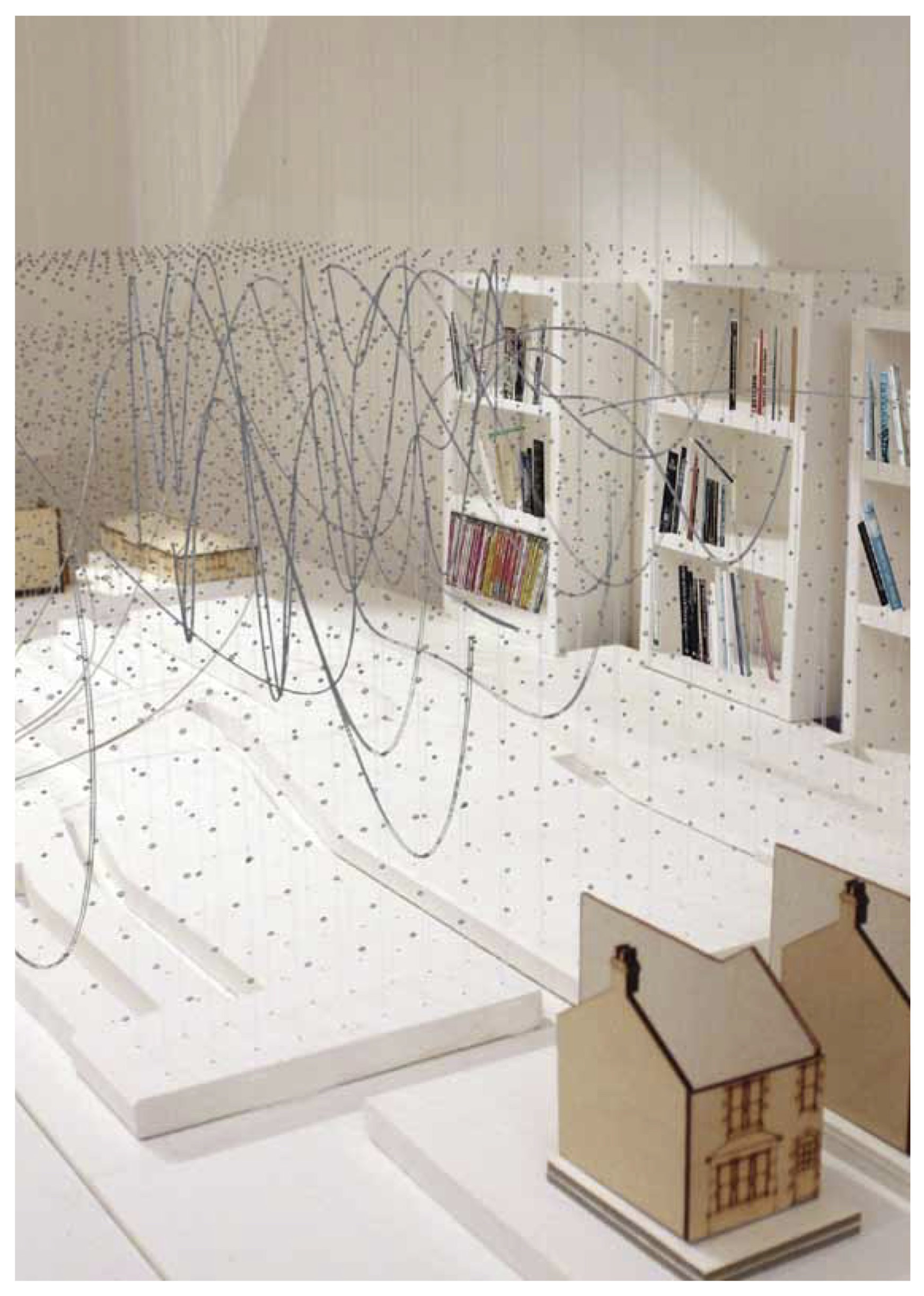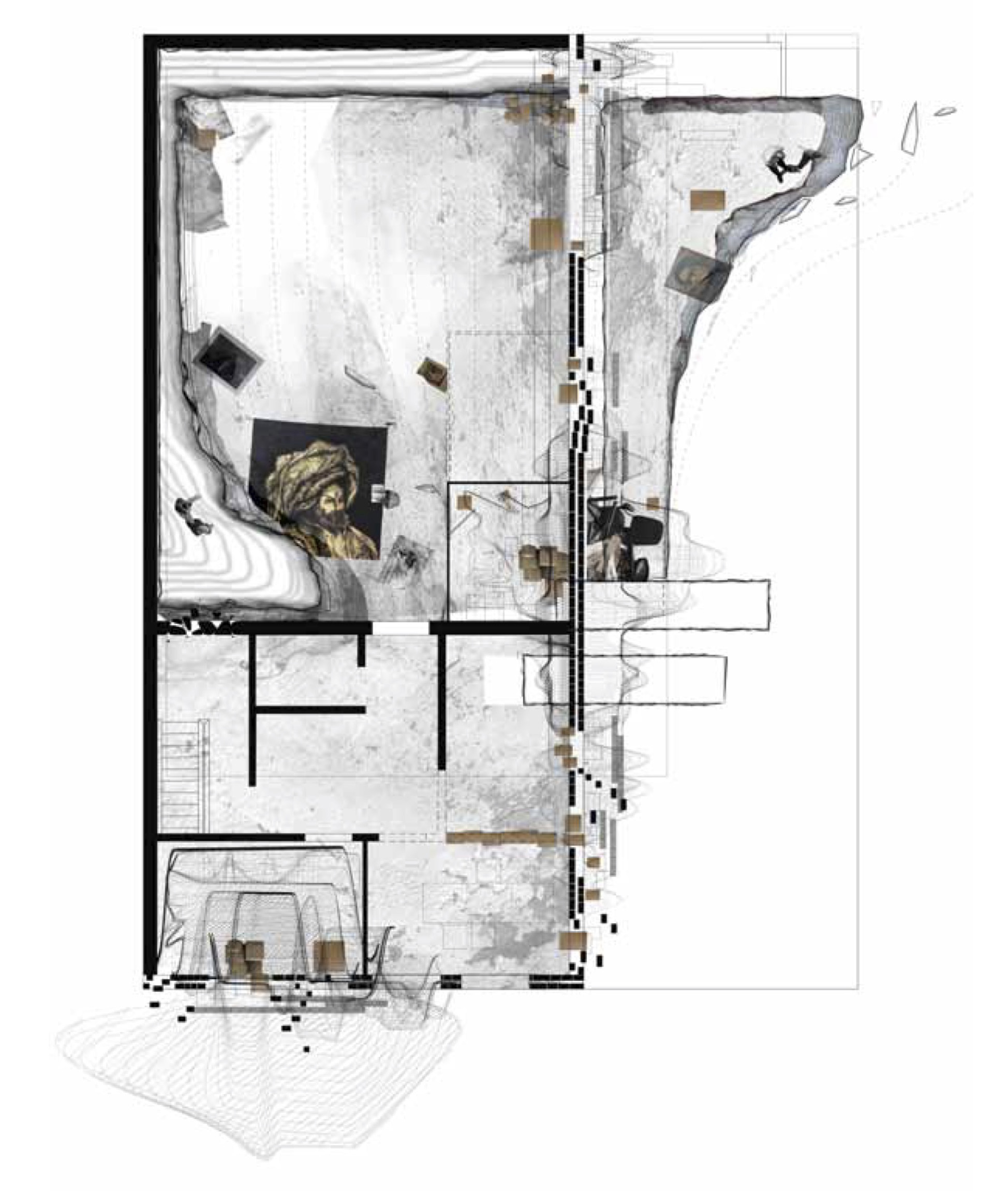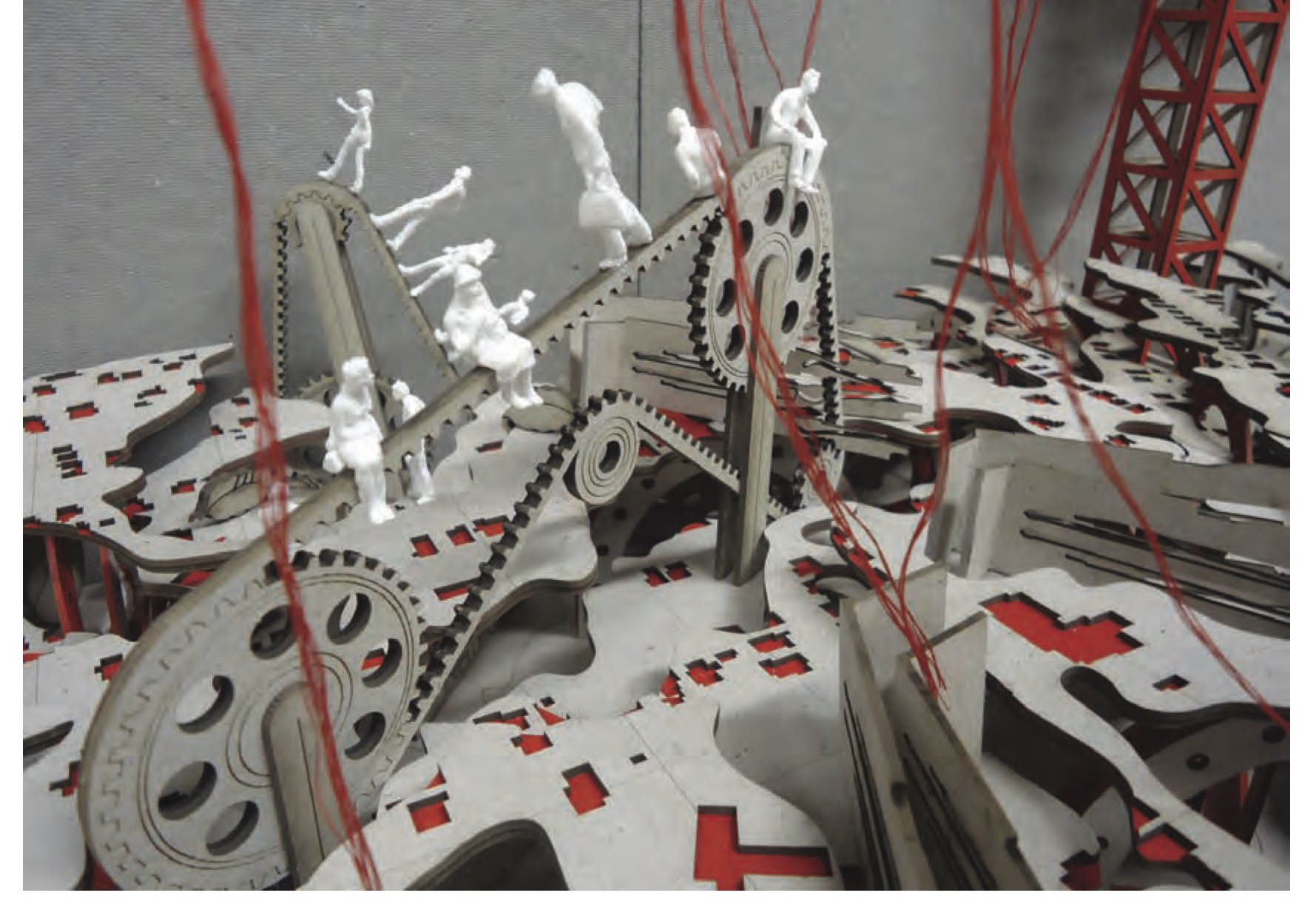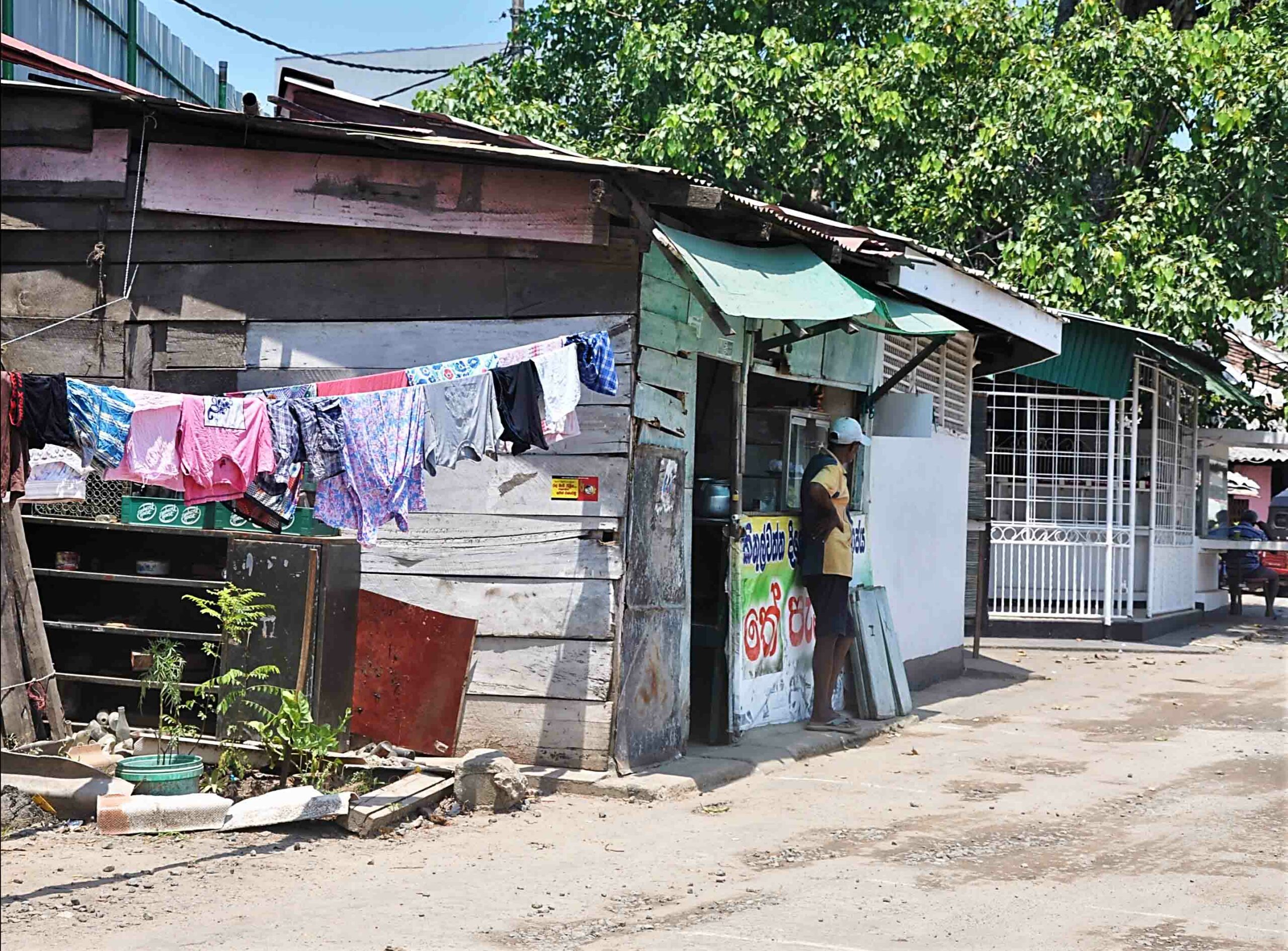Tag: race
Exploring the architectural embodiment of forms of ‘structure’, national identity and personal ‘agency’
Through a process of self-reflection, this study identifies the influence of ideas about national identity on specific design decisions and interests in the author’s wider body of work. This reflection culminates in an elaborate model that confirms the network of influences and includes speculations on future practice. The model represents connections and values promoted by family and friends, normative ‘structures’ such as institutions and government, and those shaped by, and associated with, ‘British’ history. The relationship between forms of ‘structure’ that lead to a sense of national identity and ‘agency’ (the capacity of individuals to act independently) in design decision-making is also explored within the model.
A key aspect of the thesis is the way in which encounters with ‘other’ cultures have resulted in changes in habits and thought patterns. Included also are specific moments which adjusted the personal sense of national identity away from one that may have been the author’s primary cultural reference. A supplementary diary acts as a record of decisions made during the project which affirm or problematise the influence of British identity (including its confusion with ‘English’ identity) on design projects.
In identifying parallels, negotiations and confrontations between the subject and British culture, the project does not present what British architecture ‘stands for’ or what it should be. Rather, it reflects critically on intuitive interests by cutting ties, affirming links and projecting future practice. The study also relates to broader fields of debate, such as the ability of architecture to respond to ambivalence and changing cultural contexts, and how, where and by whom certain notions of Britishness are being constructed.

Re-establishing a community’s identity from a state of flux and change
The circumstances of the Iraqi Kurdish Diaspora in London have changed dramatically following the death of Saddam Hussein in 2006 and the establishment of the Kurdish Regional Government (KRG) of Iraq. For the diaspora, this made the possibility of realising their dream of returning to a homeland a reality, but equally it removed their identity as a diaspora.
This thesis explores how the state of confusion of belonging and returning affects the cultural context in the host land of the displaced group. The physical environment in the host land, which is less connected to crisis in the homeland, reacts differently (or maybe not at all) to the sudden change of identity and the state of disorientation of the people. The site for this investigation is a cultural institution and community organisation which was supported by the host country (UK) in the 1980s for the Iraqi Kurdish community but now struggles to function as an effective source of support for the community. The Kurdish Cultural Centre London (KCC), based in the London Borough of Lambeth, accommodates the oldest Kurdish organisation in London. The KCC building is in the same physical condition as it was before 2003 (the capture of Saddam Hussein) and is decorated with diaspora memorabilia still representing the ‘homelessness’ of the nation, while the Kurdish Diaspora is in their biggest crisis of identity to date, even though the homeland has been ‘re-found’. The building has failed to deal with this crisis.
As a result of the above, the design project uses the position of an existing closed archive and library of Kurdish literature, located in the heart of the building, as a creative and symbolic trigger. In a bid to make this ‘core’ more accessible, a more flexible construction replaces the current housing of the archive. The structure embodies the nature of incompleteness and flux in an attempt to reveal the on-going narrative of the diaspora in dialogue with the building’s fabric and spatial organisation. This relationship between core and surrounding structure is conceived as analogous with that of a common imagined identity and the reality of identity as continual flux and flow.

Mapping a counter-geography to America’s colour line
This project was inspired by little-known residential security maps of 1935 for 239 American cities that delineated heterogeneous urban environments into smaller homogenous entities and, in consequence, institutionally privileged white areas over black.
As a developing southern city, Charlotte, North Carolina, provided a unique opportunity as a case study because its urban history involved nearly a century of aggressively re-sorting its racial landscape, leaving the majority – all but one – of African American communities on its periphery.
This fallacious polarisation of black and white in the urban landscape and in characterisations of individual and collective African American identity begged an alternative methodology for urban planning. Through mapping as narrative, collage and 3-dimensional model, the primary text for this project – society of the spectacle by Guy Dubord – inspired a counter- geography that sought to explore the complexities of a racially de-polarised space with ambivalent grey identities.
By exploiting the physical and ideological implications of the spectacle (Charlotte’s predominantly Caucasian centre), the alternative discourses found suggest counter-maps as a ‘weapon of the weak’ that effectively interrupted and challenged existing traditional and contemporary circuits of the dominant culture. In them, Interstate-77 (downtown Charlotte’s Northwest boundary) becomes a hypothesised colour line as a result of its divisive nature, and is punctuated by a network of ‘objective spaces’ distilled from analysis of the civil rights movement, oral histories of local Charlotteans, and African American novelists.

An investigation of informal settlements in Sri Lanka
Modernist and colonial ideas of informal settlements have resulted in them carrying negative connotations. This does not allow for an understanding of their complex nature, nor recognition of the role informality plays in cities and communities in developing countries. In this dissertation, Virosh Samuel analyses Bernard Rudofsky’s theories of ‘vernacular’ as a communal enterprise.
Focusing on the city of Colombo in Sri Lanka, Samuel seeks to better understand informal settlements by reflecting on Rudofsky’s ideas of the vernacular as a spontaneous and continuing activity of a whole people with a common heritage.
Colombo today has over 1700 informal settlements that the state plans to relocate as the city develops. This raises the question of re-housing; How best can we approach re-housing a settlement that is self-formed and constantly changing with the evolving needs and diverse identities of the inhabitants? Informal settlements develop in response to the inhabitants’ needs, encouraging interdependency that is so important in overcoming the individual vulnerabilities of a community.
This dissertation seeks to understand these intertwined social and architectural dynamics within the context of an informal settlement in Colombo, and through this to evaluate a series of rehousing projects. By understanding this relationship between communal reciprocity and architecture, this dissertation considers models to understand how the spatialisation of social interdependency could inform future housing.
